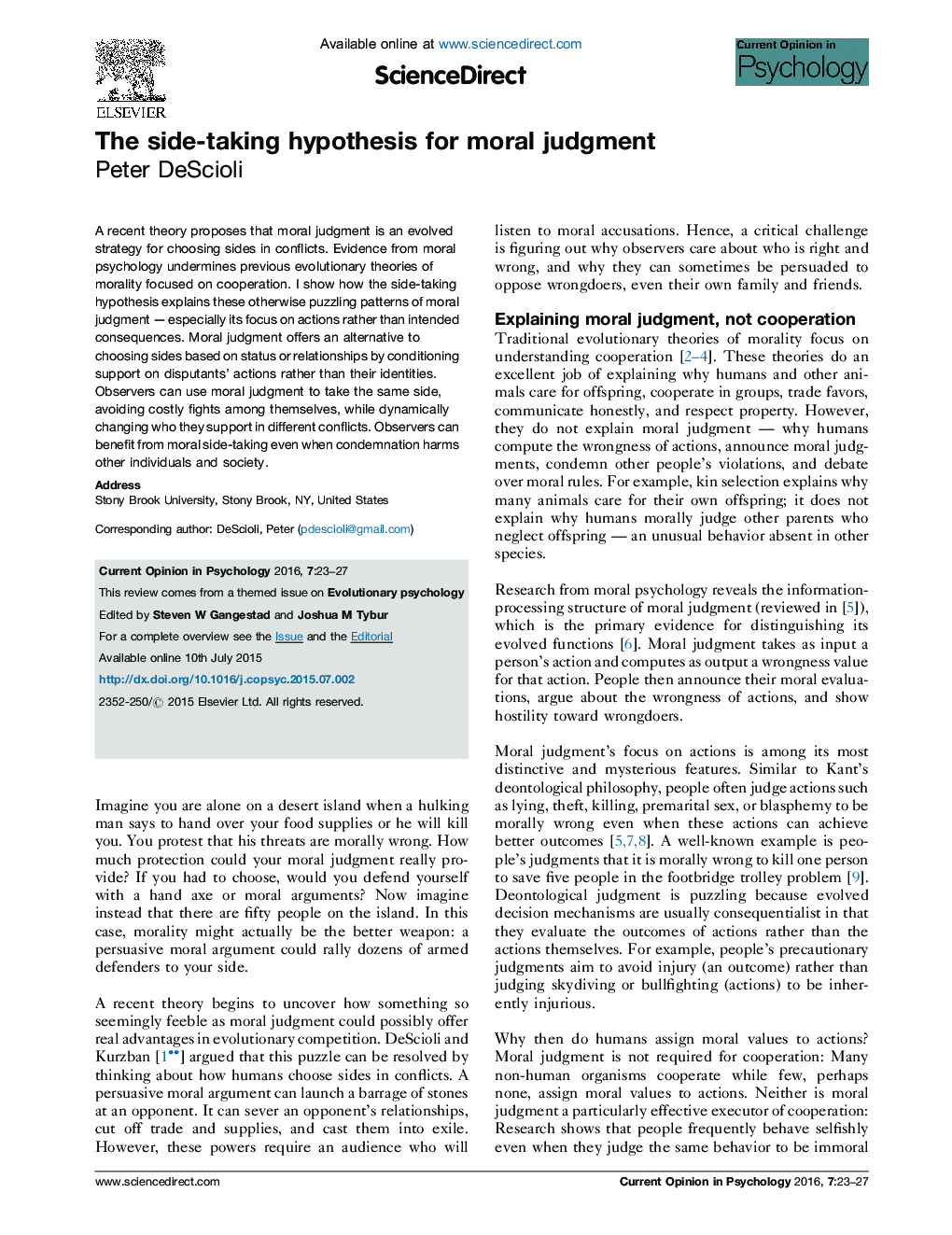| کد مقاله | کد نشریه | سال انتشار | مقاله انگلیسی | نسخه تمام متن |
|---|---|---|---|---|
| 879349 | 1471322 | 2016 | 5 صفحه PDF | دانلود رایگان |
• Moral judgment is a strategy for choosing sides in conflicts.
• Moral judgment is an alternative to choosing sides based on status or relationships.
• Moral judgment synchronizes side-taking based on actions rather than identities.
• Morality can be destructive because it is designed for side-taking, not cooperation.
A recent theory proposes that moral judgment is an evolved strategy for choosing sides in conflicts. Evidence from moral psychology undermines previous evolutionary theories of morality focused on cooperation. I show how the side-taking hypothesis explains these otherwise puzzling patterns of moral judgment — especially its focus on actions rather than intended consequences. Moral judgment offers an alternative to choosing sides based on status or relationships by conditioning support on disputants’ actions rather than their identities. Observers can use moral judgment to take the same side, avoiding costly fights among themselves, while dynamically changing who they support in different conflicts. Observers can benefit from moral side-taking even when condemnation harms other individuals and society.
Journal: Current Opinion in Psychology - Volume 7, February 2016, Pages 23–27
